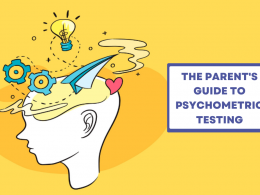Many families and students contemplate switching curriculum for Grades 11 and 12 for various reasons. Switching curriculum is an important decision in a student’s life as it will define the course of their career. So, if your child wants to switch curriculum, as a parent you must research well to help your child make an informed decision.
When it comes to curricula, several well-recognized options are available, with the ICSE and Cambridge boards being the popular choices. However, the International Baccalaureate Diploma Programme (IBDP) has gained immense popularity in the past 3 years across most cities, especially Mumbai, Delhi and Bangalore.
The International Baccalaureate curriculum is currently being taught in over 169 schools in India. The growing popularity can be attributed to its holistic approach to education and emphasis on critical thinking, global awareness, and academic depth.
So, if your child is considering switching to IBDP, read this blog for critical insights, and help your child make a wise choice.
Comparing the Transition from IGCSE, CBSE, and ICSE to IB:
| Shifting from | Pros | Cons |
| IGCSE to IB | While IGCSE emphasizes subject knowledge, IB helps students build skills in critical thinking, problem-solving, and understanding global issues. | The IB involves significant coursework, research, and requires excellent time management skills, which can be challenging for IGCSE students. |
| IB values extracurriculars and personal growth, providing a more well-rounded education compared to IGCSE’s academic focus. | The IB’s focus on exploring topics and interlinking subjects may feel unfamiliar to students accustomed to IGCSE’s more traditional, subject-specific style. | |
| Many universities recognize the IB for its rigorous curriculum and emphasis on independent learning, offering better preparation for higher education. | ||
| CBSE to IB | CBSE provides structured guidance, while IB fosters exploration, critical thinking, and deeper analysis, preparing students for academic success. | As IB is less common in India, students may find it challenging to adjust to a different grading system and teaching methods. |
| The IB focuses on global issues and diverse cultures, equipping students with a broader worldview. | Compared to CBSE, the IB requires more assignments, research work, and effective time management, which can be overwhelming initially. | |
| IB encourages independent learning and analytical skills, which are less emphasized in CBSE’s exam-focused approach. | ||
| ICSE to IB | While ICSE is widely recognized in India, IB holds greater global recognition, opening more international opportunities. | The IB typically requires more time for assignments and extracurricular involvement compared to ICSE. |
| IB emphasizes research-based and self-guided learning, which aligns with the skills needed for higher education. | ICSE’s structured and exam-oriented focus may make adapting to IB’s exploratory and interdisciplinary style challenging. | |
| IB encourages linking subjects, fostering a holistic approach to learning that contrasts ICSE’s structured subject-based system. |
Why should your child switch to the IBDP curriculum?
The IBDP curriculum is respected and recognized across the globe, a factor that makes the transition easy for students planning to switch schools. The concept of IB (International Baccalaureate) is to develop skills like communication, critical thinking, and research, that go beyond textbook knowledge. The multidisciplinary connections in IB allow the students to understand the correlation between subjects.
Another factor that helps is the multilingual approach supported by the IB. Students can continue to study their preferred languages and improve their proficiency in them, irrespective of the curriculum they choose.
Lastly, the global emphasis of the IB allows students to better connect their learnings with the real world. The IB’s assessment system is also different and includes examinations, coursework, and essays, which makes it easier for students to transition from traditional approaches to other curriculums. Incase of any doubts, reach out to our counsellors at LilacBuds.
IBDP curriculum overview
| Number of subjects | Six |
| Additional components | Theory of knowledge (TOK)
Extended essays (EE) Creativity, activity, service (CAS) |
| Exams | The exams are conducted at the end of Grade 12. Journals are regularly submitted, and students must go through EE/TOK/internal assessments. |
| Mode of teaching | Analytical + Content-based |
IBDP subjects
| Categories | Subjects | |
| Group 1 | Studies in language and literature | Language A
|
| Group 2 | Language Acquisition |
|
| Group 3 | Individuals and Societies |
|
| Group 4 | Sciences |
|
| Group 5 | Mathematics |
|
| Group 6 | The Arts |
|
Key factors to keep in mind when switching the Curriculum

1. Understand the curriculum: Before you go ahead with the big decision, take some time to understand the curriculum thoroughly. Since every curriculum has a different range of subjects, assessment methods, and teaching styles, it is vital to know if that is what your child needs.
2. Factor in your child’s strength: Is your child struggling with their current curriculum? Do you believe they might benefit from a change in teaching style? Are the things they want to study available in a certain curriculum? Knowing the answers to these kinds of questions will aid you in making a decision.
In terms of teaching approaches, the Indian curriculum expects students to absorb a large quantity of information for their final tests, whereas international curricula emphasize critical thinking and analytical skills.
3. Check if the change will really benefit your child: At the end of grade 10, students are 16-17 years old, and hormones are high. The urge to fit in socially is equal to the academic strain. Changing your child’s school can be either useful or disastrous. You, as a parent, are the best judge of what is good for your child.
4. Check school compatibility: Ensure the school you’re considering has a good track record with IBDP and supportive teachers. Look into past student achievements, teacher qualifications, and available resources to ensure a supportive environment.
5. Long-term benefits: Consider how the IBDP’s global recognition and skill-building opportunities can benefit your child’s higher education and career prospects. Its emphasis on critical thinking, research, and communication prepares students for international universities and competitive career fields.
Conclusion
As a parent, you understand your child the best! Before switching schools and curriculum, carefully weigh all of your options. If you decide to move the curriculum, make sure your child can comprehend the IBDP ethos. Speak with current students and parents at the schools you’re considering to determine whether your child will fit in.
If you are still confused about making the right curriculum choice, do not hesitate to schedule a one-on-one appointment with our competent mentors at LilacBuds to learn more about all your possibilities. For further information, please contact LilacBuds.
Frequently Asked Questions
Q. Is it worth to switch curriculums?
Switching curriculum serves as a great option for students looking for a more globally recognized education with development of personal traits. CBSE and ICSE are more traditional and India-specific.
Q. How difficult is it for children to switch curriculums?
The difficulty of transition depends upon the adaptability of the students and the difference between both curriculums. It is usually harder for older students than younger students.
Q. When can I switch curriculums?
The best time to switch curriculums depends on the student’s age and school stage, with early grades (1-5) being easy, middle school (6-8) requiring adjustment, and high school (9-11) being more difficult due to specialized subjects, and switching in Grade 12 being the hardest but still possible depending on the school’s rules and the student’s adaptability.
Q. What is the process of getting into IB schools?
The process of getting into an IB school typically involves researching suitable schools, submitting an application with required documents, and, in some cases, attending an interview or assessment, followed by acceptance and enrollment.
At LilacBuds, we specialize in guiding students through this process, helping them shortlist suitable IB schools, prepare compelling applications, and even ace interviews or assessments. Our personalized consulting ensures you make the best choices for your academic journey.














